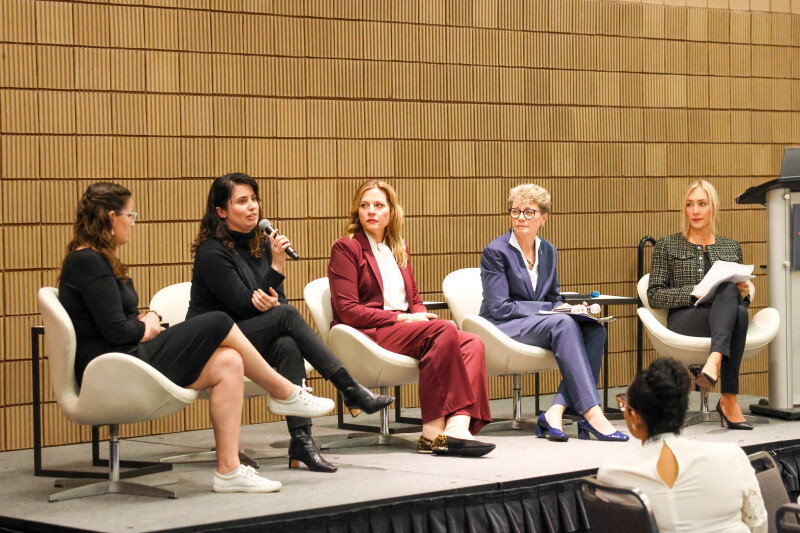The inaugural Women in Maritime Luncheon at the International WorkBoat Show (IWBS), brought together an inspiring panel of women who are reshaping the maritime industry.
Moderated by Kasey Eckstein, president of Eckstein Trade and Transport LLC, the session, sponsored by the Massachusetts Maritime Academy, highlighted the crucial need for early recruitment and the power of mentorship. Featured panelists included Mary McCarthy from Moran Towing Corp.; Rear Adm. Anne Phillips of the U.S. Department of Transportation; Ally Cedeno, founder of Women Offshore; and Taylor Dickerson from Kirby Corp.
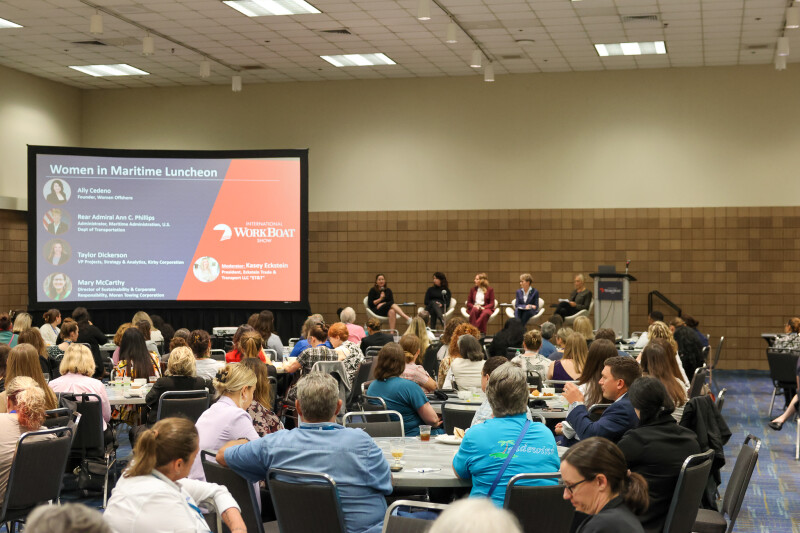
Early Recruitment and Career Exposure
A consistent theme throughout the discussion was the importance of reaching future mariners at a young age. “There’s a tremendous amount of opportunity, but it’s going to take a full range of stakeholders to come together to put effective programs in place,” Phillips said.
Cedeno also shared her experience in speaking to middle school students. “Their eyes just lit up when I talked about the sea life and unique places I’d seen," she said. "It was clear that they needed to hear about this career option much sooner.”
Dickerson added a personal story about her young sons and the impact of showing them her work. "They got to tour a new hybrid tug we launched in Houston and sit in the captain’s chair. Their eyes got so big and bright,” she said. “Halloween came around, and they wanted to be a captain. The point is, we need to get to them younger and younger — as early as possible.”
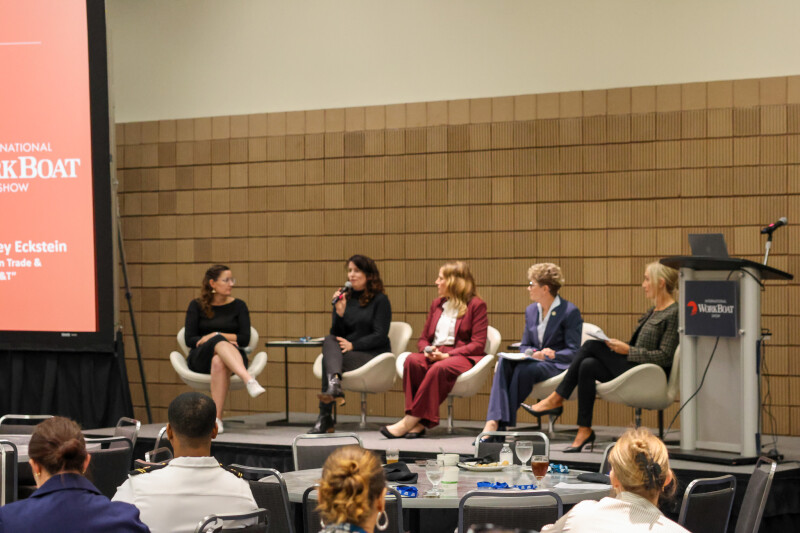
Women in Leadership
The panel addressed the significant underrepresentation of women in maritime leadership roles. “We rarely see women in the C-suite, especially in the inland industry," said Eckstein. "When women look at entering this industry, they want to see a path forward, but without role models, it’s hard to envision that path.”
Dickerson, who became Kirby’s first female officer, shared her own journey.
“I had to do the job before I got the job," she said. "Now, we’re seeing more women in our operations and as port captains, and it’s changing the company culture.”
Cedeno echoed the need for dedicated development programs. “We need foundational programs that help get women to the top so they can be the role models in this industry.”
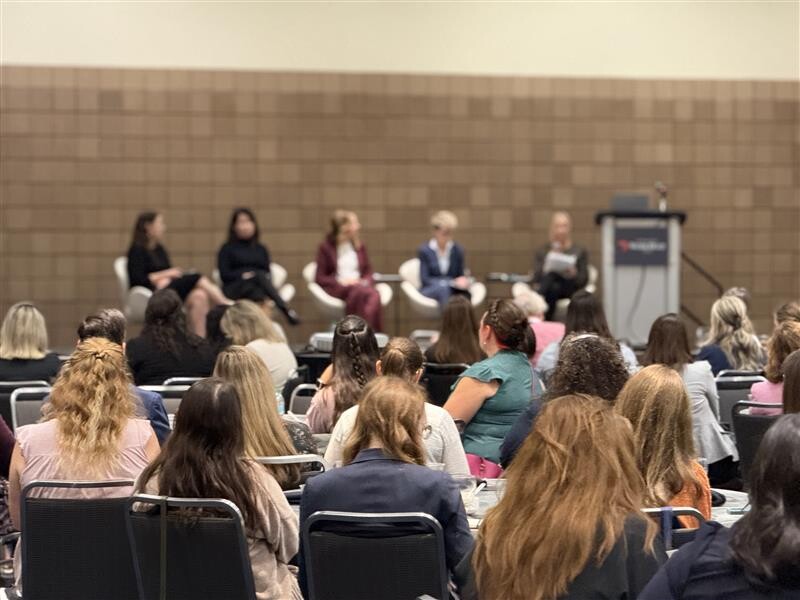
The Impact of Mentorship
Mentorship was highlighted as a vital tool for recruitment and retention. Cedeno’s organization, Women Offshore, provides formal mentorship with resources tailored to the challenges women face in the industry. “It’s about pairing mentors and mentees and giving them a checklist, because in this industry, we love a checklist,” she said, underlining the need for structure and continuity.
Dickerson spoke of her commitment to mentorship through Women in Maritime Operations, explaining that they offer mentorship for anyone interested, including students and seasoned professionals. “We match mentees with mentors in their area or with specific expertise,” she explained. “The aim is to create that support system early on, so women feel they belong in this industry.”
McCarthy also touched on the two-way benefits of mentorship. “It’s easy to think mentorship is all about the mentee, but we mentors gain so much too. I feel like I benefit just as much from my mentee in staying current with new perspectives and technology.”
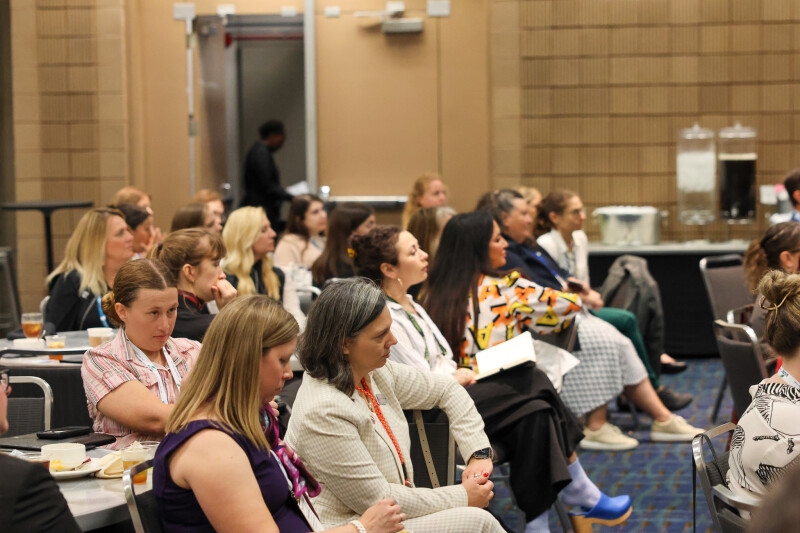
The Power of Social Media
Social media has become a transformative tool in recruitment efforts, especially post-Covid. Dickerson explained how Kirby tapped into social platforms to connect with a broader pool of candidates. “We had to put ourselves out there in new ways,” she said. “People came to realize they could find fulfilling maritime careers, and social media allowed us to highlight those paths.”
It helped the panelists’ companies reconnect with people who may not have considered maritime before but saw the stories and possibilities shared online. Cedeno added that social platforms allow Women Offshore to build community and visibility, “giving potential recruits a look into what this industry offers, which is crucial when, so few know about maritime careers from an early age.”
The panel concluded with a call to action, emphasizing that change must come from collaboration across the industry. “It takes the industry coming together. It’s not just one organization or one program. It’s all of us,” Phillips said.
The inaugural luncheon showed that with continued effort, commitment, and support, women in maritime can look forward to a future where their voices and contributions shape the industry from entry-level to management.




